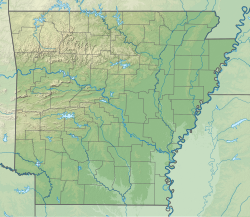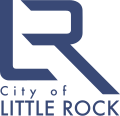By the year 2012, Arkansas had played nearly 200 games in the stadium, usually playing two or three a year, although there were some seasons in the 1970s and 1980s when the Razorbacks played four home games at WMS. In the year 2000, athletic director Frank Broyles generated controversy by announcing that one home game would be moved from War Memorial to Fayetteville (where the Razorbacks normally play their home games). It was later revealed that Razorback Stadium on the UA campus was going to be renovated and expanded from 50,000 seats to 72,000 seats. Despite objections from Little Rock-based individuals, only two home games would be played at War Memorial up until 2012.
In 2013, it was announced that there would only be one game a year played at War Memorial up until 2018, at which point the team would play only in Fayetteville. In 2018, a new agreement was reached, allowing the Razorbacks to play one non-conference game at War Memorial every other year. [25]
In 2021, the Razorbacks played the Golden Lions of the University of Arkansas at Pine Bluff (UAPB), marking their first game against an in-state opponent since 1944. [26] The Razorbacks won 45-3. Between 2023 and 2025 the Razorbacks would play one non-conference opponent every year at War Memorial. In 2023, Arkansas defeated the Western Carolina Catamounts 56-13, and in 2024 the Razorbacks again defeated UAPB, 70-0.
In 2025, the Razorbacks played the Arkansas State Red Wolves for the first time, hosting them at War Memorial before a sold-out crowd of 54,224. Currently, the Razorbacks do not have any games scheduled at WMS after 2025.
Aluminum Bowl
Months prior to the 1956 NAIA football season, the National Association of Intercollegiate Athletics (NAIA) began searching for cities to host the inaugural NAIA championship game. As it appeared that the championship game was headed to Shreveport, Louisiana, the Louisiana legislature passed a bill banning integrated sporting events in the state. [27] Since some of their member colleges had African-American athletes, NAIA looked for another city to host the game. War Memorial Stadium general manager Allen Berry worked with local businesses and the Little Rock Chamber of Commerce to raise $25,000 to get NAIA to host the game in Little Rock. [27] Both Aluminum Company of America and Reynolds Metals Company agreed to pay $25,000 each to CBS to broadcast the game nationally and this agreement led to the game's name, the Aluminum Bowl. [27] The NAIA invited the Montana State University Bobcats and St. Joseph's College Pumas, the two leading NAIA football teams at that time, to play on December 22, 1956. [28] [29] The final result was a scoreless tie, and the teams were named NAIA co-champions for the 1956 season. Despite promotion of the game by local organizers, only 5,000 spectators attended the game. Organizers failed to keep the championship game in Little Rock and the game moved to St. Petersburg, Florida in 1957. [27] [30]
Salt Bowl
The Benton High School Panthers and the Bryant High School Hornets annually play each other for their first football game of the season. Although the rivalry dates to 1974, the game officially became known as the "Salt Bowl" in 2000 when it was first played at War Memorial Stadium. The title is a reference to the 19th century salt works that gave Saline County, the home of both the cities of Benton and Bryant, its name. While Benton dominated the rivalry in its early years, since 2000 Bryant has won all but two match-ups: a loss in 2005 and tie in 2014. Each year the Salt Bowl draws the largest high school football crowd of the season in Arkansas, and exceeds the attendance of most college football games held in the state. Over 20,000 tickets are sold on average, with a record of 38,215 set in 2018. During the 2018 game, a fight involving a stun gun caused a mass panic when spectators thought they heard gunshots. The game was cancelled, with authorities later reporting there was no real danger to spectators. [31] On August 29, 2020, the annual contest was held amidst the Covid-19 pandemic with War Memorial Stadium restricted to approximately 25% capacity. This made the Salt Bowl the first sizable sporting event with spectators since the pandemic began; it also marked the first time the game was available on pay-per-view. [32] [33]




